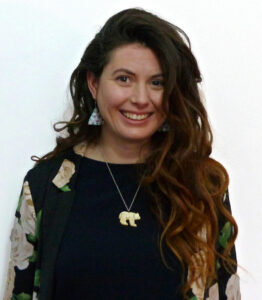Indigenous Training Course
Outliers Mining Solutions is committed to keeping sustainable environmental, social, and governance practices front of mind as we build our business and work to build value for our clients. With the goal of educating our team on the history and current issues regarding the Indigenous people of Canada and the role extraction industries play, we asked Laura McPhie to design an education program for Outliers Mining Solutions.
We asked Laura to provide some insight into her program.
The big question – why is it important?
Honourable Justice Murray Sinclair, Chair of the Truth and Reconciliation Commission has said “Education got us into this mess and education will get us out of it.” To understand how and why we are in the present moment we need to understand the initial design of colonization. This particular moment of time has been constructed, deliberately, by generations of governments that wanted to shift sovereignty and power away from Indigenous people. Understanding this allows people to view the Indigenous-settler relationships in a different way and centers the responsibility of good relations away from Indigenous peoples and onto people wanting to engage in a good way. The path forward requires non-Indigenous peoples to take that responsibility and understand the unique power dynamics that they have in building reciprocal relationships.
What does this course cover?
It is important when doing this sort of learning that we don’t shy away from the ugly things and challenge ourselves to be uncomfortable with the history that has created wealth for certain groups while intentionally marginalizing the opportunities of others. This first part of the course is dedicated to building a basic understanding of terms and understanding the intentional actions throughout history that have created the moment in time Indigenous peoples and Canada are in now. Building off of this, the course looks into the specific history and power dynamics that have been involved in resource extraction. With that understanding, the course builds some basic knowledge around Indigenous worldviews, specifically around land and water, and then introduces some cultural competency around building relationships and protocol.
Why is it important for Outliers to be doing this sort of learning?
Land and resources are at the heart of colonization and the people are the collateral damage. Working in land and resource development puts a particular burden of understanding on Outliers. The goal is to build the understanding of colonization across the staff so that they can start and hold relationships in ways that are respectful and reciprocal. This means recognizing the unique relationship between land, waters, and Indigenous peoples and the sovereignty and responsibility they have to care for the land.
 Laura McPhie (she/her/kwe) is a member of Pikwakanagan First Nation and of mixed Indigenous and colonial descent. She speaks from the lived experience of being a Two-Spirit/Queer urban Indigenous person who is a trauma survivor and neuro-divergent. Laura’s education includes two Masters that focused on Museum and Cultural Heritage, Business and Sport Administration, and Sexual Diversity Studies from Ohio University and University of Toronto. Currently, she uses her lived experience as a queer, Indigenous, trauma survivor to design interactive training, education frameworks, and DEI policy advice for organizations.
Laura McPhie (she/her/kwe) is a member of Pikwakanagan First Nation and of mixed Indigenous and colonial descent. She speaks from the lived experience of being a Two-Spirit/Queer urban Indigenous person who is a trauma survivor and neuro-divergent. Laura’s education includes two Masters that focused on Museum and Cultural Heritage, Business and Sport Administration, and Sexual Diversity Studies from Ohio University and University of Toronto. Currently, she uses her lived experience as a queer, Indigenous, trauma survivor to design interactive training, education frameworks, and DEI policy advice for organizations.By: Laura McPhie
Connect with an Outlier
Subscribe to our monthly newsletter!
All Rights Reserved
